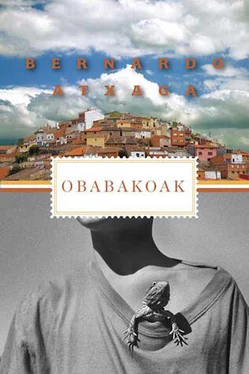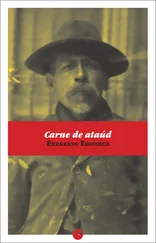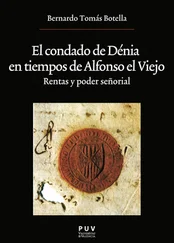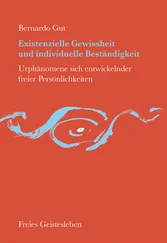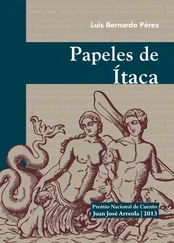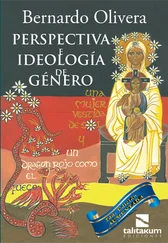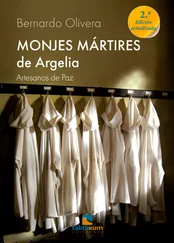Bernardo Atxaga - Obabakoak
Здесь есть возможность читать онлайн «Bernardo Atxaga - Obabakoak» весь текст электронной книги совершенно бесплатно (целиком полную версию без сокращений). В некоторых случаях можно слушать аудио, скачать через торрент в формате fb2 и присутствует краткое содержание. Год выпуска: 2010, Издательство: Graywolf Press, Жанр: Современная проза, на английском языке. Описание произведения, (предисловие) а так же отзывы посетителей доступны на портале библиотеки ЛибКат.
- Название:Obabakoak
- Автор:
- Издательство:Graywolf Press
- Жанр:
- Год:2010
- ISBN:нет данных
- Рейтинг книги:3 / 5. Голосов: 1
-
Избранное:Добавить в избранное
- Отзывы:
-
Ваша оценка:
- 60
- 1
- 2
- 3
- 4
- 5
Obabakoak: краткое содержание, описание и аннотация
Предлагаем к чтению аннотацию, описание, краткое содержание или предисловие (зависит от того, что написал сам автор книги «Obabakoak»). Если вы не нашли необходимую информацию о книге — напишите в комментариях, мы постараемся отыскать её.
Obabakoak
The Observer
Obabakoak — читать онлайн бесплатно полную книгу (весь текст) целиком
Ниже представлен текст книги, разбитый по страницам. Система сохранения места последней прочитанной страницы, позволяет с удобством читать онлайн бесплатно книгу «Obabakoak», без необходимости каждый раз заново искать на чём Вы остановились. Поставьте закладку, и сможете в любой момент перейти на страницу, на которой закончили чтение.
Интервал:
Закладка:
“Now tell me the truth. Who sent you?” he asked when the executioner had finished his work.
“Mohammed, our prophet!” cried the two prisoners.
One of the merchants observing the scene went over to the Annamites and wiped away the blood.
“I’ll give you money, a lot of money. Tell us who your chief is,” he said in a gentle voice.
“Allah is our one true God,” said one of the Annamites weakly. The other was already dead.
Aga Kubalai was gesticulating like a madman. He threatened the executioner. But it was all in vain, for shortly afterward the second Annamite also fell silent forever.
The disquiet among those gathered in the cellar grew even more intense with the arrival of the palace guard.
“Lord Governor,” said the guard, bowing his head. “Your eldest son has died. With a poisoned arrow through his heart.”
Those who had been present at the torture exchanged glances. Aga Kubalai covered his face with his hands. Then, in groups, they all hurried back to their houses.
X and Y
“IT LOOKS LIKE the story about the lizard has kept you pretty busy,” our uncle said when we’d told him all about the lsmael affair. By then it was half past eight at night and the three of us were sitting in the library. Exhausted after his night spent on the grass, Mr. Smith had retired to his room once he’d told us his Wei Lie Deshang story.
“It certainly has. It’s kept us busy and made us look pretty foolish,” we admitted.
“How could it be otherwise, boys?” said my uncle with an exaggerated sigh.
“What do you mean, Uncle?”
“What I mean is, that it couldn’t have turned out otherwise, given the weakness of your literary theories. For what happened to you has nothing to do with your alleged desire to get to the bottom of things, nor, indeed even less so, with the great powers of imagination you believe you possess. All that is involved here is your mistaken interpretation of the little story about lizards.”
“You’re being very strict and severe, my friend,” Mr. Smith would have said had he been there.
“Explain yourself, Uncle,” we said.
“It’s obvious! You both consider literature to be a game without any practical use. And believing that, you were incapable of unearthing the clue hidden in the story your parents used to tell you. Because, if we look at it closely, what is the moral of the story? What does it tell children? What do you think it says to children? Well, it tells them that it can be very dangerous to go to sleep on the grass and that they should be very careful. ‘If you fall asleep, a lizard will come along and crawl into your ear,’ the mother tells the child. But what is the mother really worried about? What is the real danger? The lizard? Of course not! Not at all!”
“What can it be then? Snakes?” my friend said.
“Snakes are a possibility. But not just snakes. It could be the dampness of the grass, or a mad dog, or a maniac, anything. There could be many dangers, so many that listing them one by one to the child would be absurd. That’s the whole raison d’être of the fable of the lizard because it sums up, in the form of a metaphor, every possible danger. Bear in mind too that the lizard is like a small dragon and in traditional stories dragons are always a symbol of evil. So everything in the fable fits, it’s very logical.”
“What is less logical, Uncle, is what you said before, about how, for us, literature is just a game. But we’d best leave that argument for another time. Returning to the subject, Uncle, tell me something, why a lizard and not a snake? I think a snake would be a much more suitable protagonist.”
“What do you want? Do you want me to give you a literature class, is that it?” asked my uncle with his most provocative of smiles.
“We’re used to it, Uncle. Don’t you worry about us,” I replied. The literary gatherings in his house usually ended with him delivering a vehement lecture.
“You may well both be used to it, but you never take a blind bit of notice of me. You least of all, Nephew. Since to you I’m just a relic from the nineteenth century…”
“Get on with it, Uncle. We can see how pleased you are with our ‘mistaken’ interpretation of the story. But do get to the point, it’s getting late.”
“Late? Surely you’re not leaving tonight.”
“I’m afraid so. Don’t forget he’s a doctor. He has to go to work tomorrow.”
“I’ve no option but to go back, but you could stay. I can get the train,” said my friend.
“If there is one, of course.”
“Oh, there is one. There’s one I sometimes catch and that leaves quite soon. I can tell you the exact time right now,” said my uncle, opening a drawer and pulling out a train schedule. “It’s at nine fifteen,” he told us.
“Well, if you don’t mind going back on the train, I’ll take you to the station and you can catch that one. If we leave the house at nine, that’ll give us plenty of time.”
“Fine.”
“The fact is it would suit me if you stayed,” said my uncle, looking at me. “As you know, I haven’t got a car, and what with Samuel being here…”
“Don’t worry, Uncle. I’ll play taxi driver and take you anywhere you want. You ought to get some benefit out of having a modern nephew like me.”
“That’s settled, then. Now on with the literature class,” said my friend.
“Where were we?”
“We were discussing why it was a lizard and not a snake?”
“Ah, yes. Well, I think that mothers in those days were very sensible, and were very careful when it came to frightening their children. They needed to frighten them but only a little, not so much that they would be utterly terrified by the story and develop a listless, cowardly attitude toward life. And from that point of view, the lizard was much more suitable. Because, thanks to some sort of instinct, the child understands that the danger is not a serious one. He’ll follow his mother’s advice but he’ll do it just in case, without giving much importance to the matter.”
“We obviously weren’t blessed with that instinct,” I remarked.
“Perhaps it isn’t a question of instinct,” said my friend. “Maybe the child reads the expression on his mother’s face or in her voice or in her gestures, and so understands that what she’s telling him isn’t so very important. If the mother were to mention a snake, his reading would be quite different.”
“Yes, that’s an interesting point. You can’t tell a story about snakes without feeling some sort of repulsion or anxiety. Maybe you’re right.”
“But some lizards are dangerous. The Lacerta viridis for example,” I said.
“I don’t think so, Nephew. As Ismael told you, the lizards in this country are harmless. And so, by the way, are those in England. You only have to think of that poor lizard Bill whom Lewis Carroll’s Alice met. He’s the saddest creature in the whole book.”
“I don’t remember him,” I confessed.
“Neither do I,” said my friend.
“Wait. I’ll show you.”
My uncle went over to the bookshelves and, after searching first one shelf then another, he returned holding the book.
“Look, there he is.”
The illustration showed some animals, a rabbit and a rat among them, holding down a small, contrite lizard and forcing him to drink brandy.
“They want to get him drunk against his will. A real unfortunate, our Bill.”
“You can say that again, Uncle.”
The illustrations were delightful and we would like to have looked at them all. But the uncle from Montevideo was a very impatient teacher. The lesson must go on.
“Anyway, getting back to the subject of your mistaken interpretation of the story, you were really groping in the dark. Far more than one would have expected from two lovers of literature,” he said, adopting his strict and severe tone again. “Because, on reflection, the lizard story could also be interpreted from your point of view. I mean, it’s possible to understand it using that ‘intertextuality’ you’re so keen on.”
Читать дальшеИнтервал:
Закладка:
Похожие книги на «Obabakoak»
Представляем Вашему вниманию похожие книги на «Obabakoak» списком для выбора. Мы отобрали схожую по названию и смыслу литературу в надежде предоставить читателям больше вариантов отыскать новые, интересные, ещё непрочитанные произведения.
Обсуждение, отзывы о книге «Obabakoak» и просто собственные мнения читателей. Оставьте ваши комментарии, напишите, что Вы думаете о произведении, его смысле или главных героях. Укажите что конкретно понравилось, а что нет, и почему Вы так считаете.
